J Dilla Digital Biography
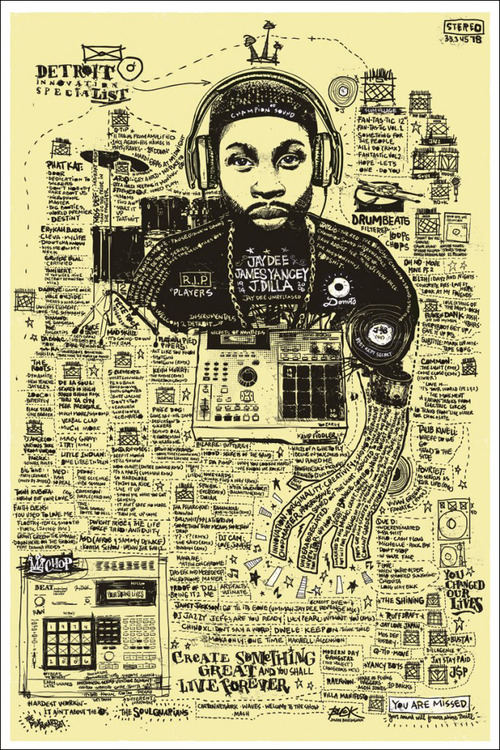



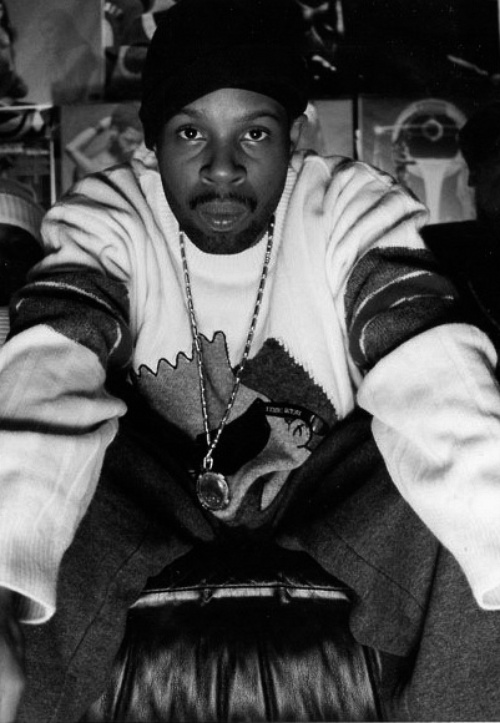

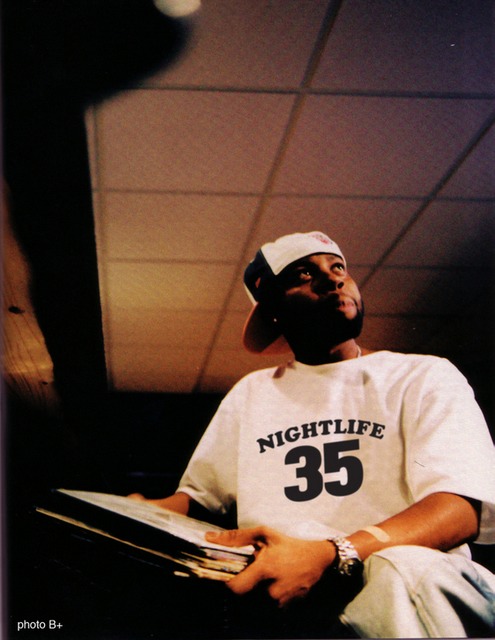
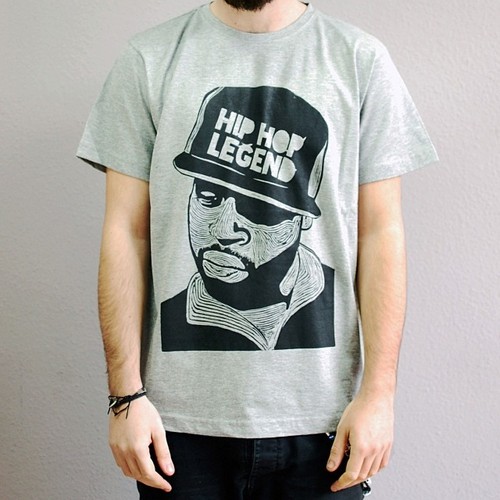
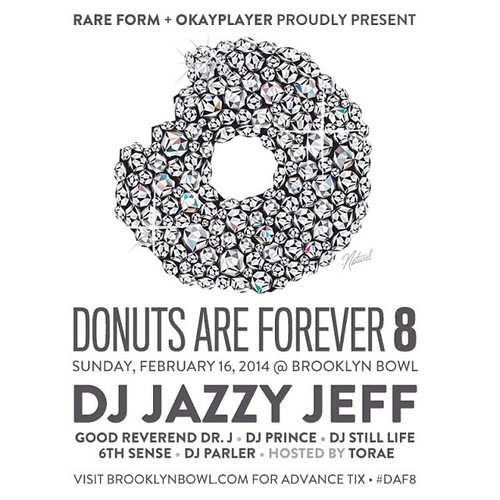



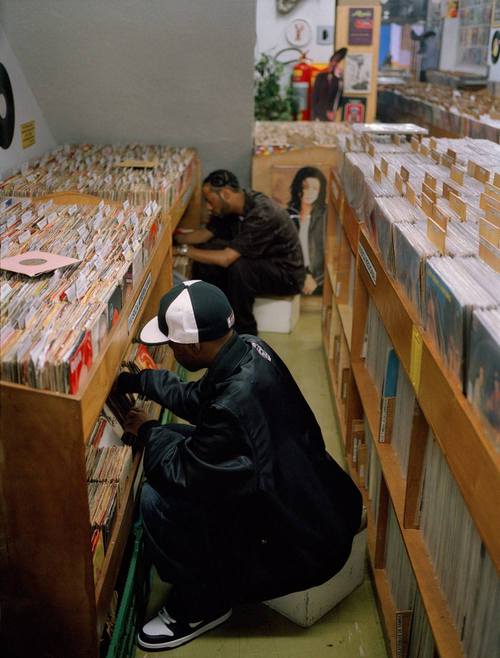
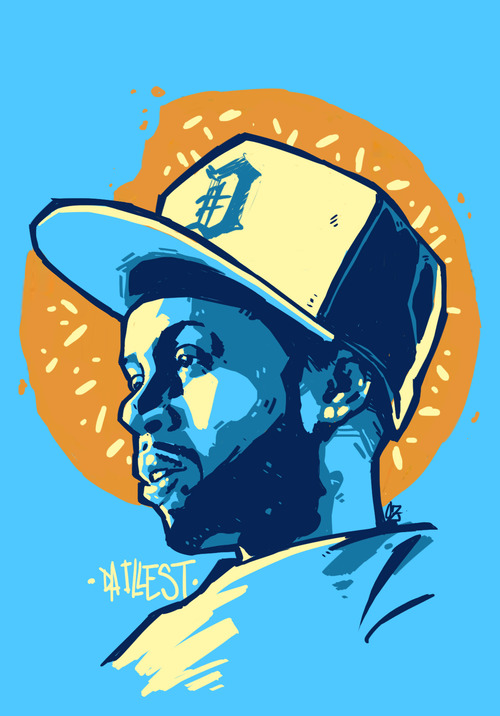
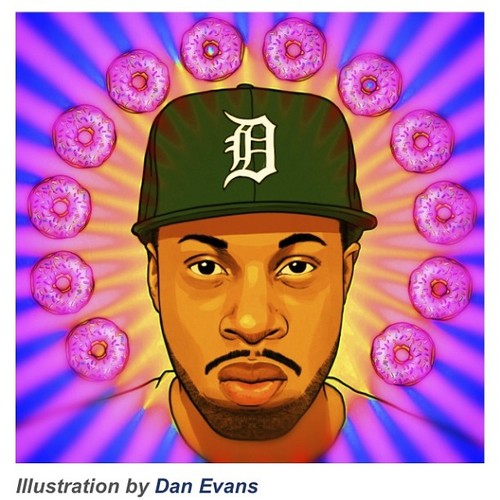
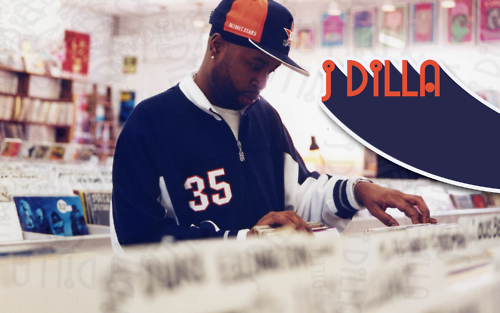
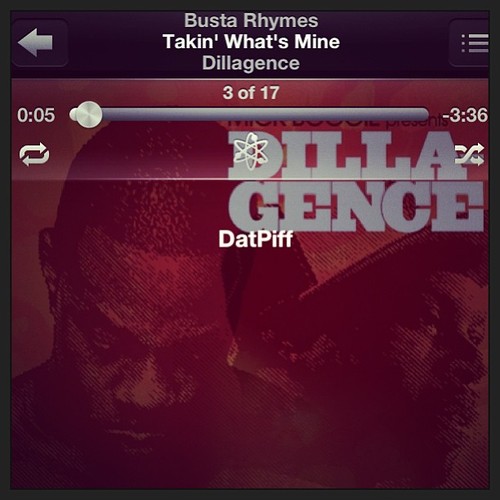
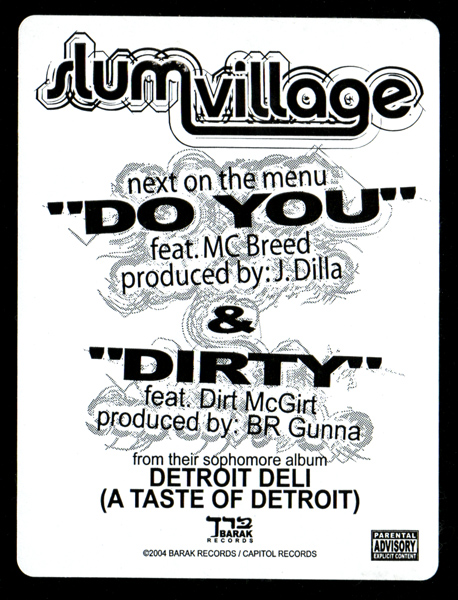


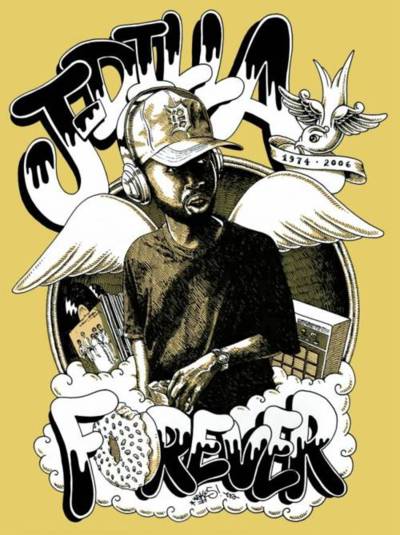

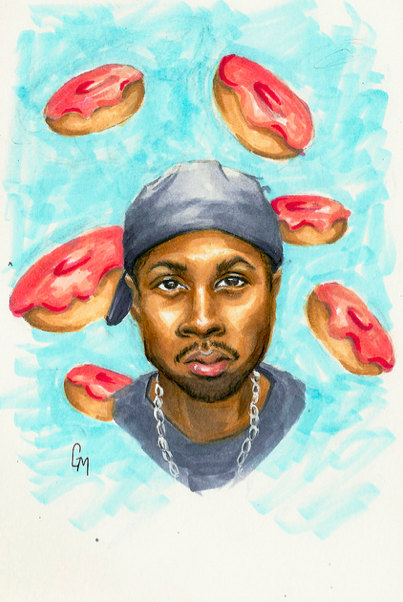
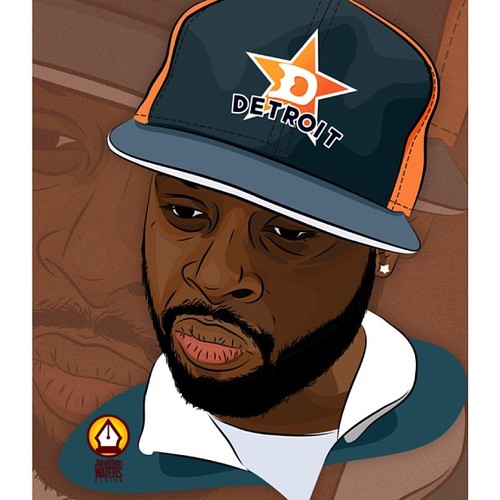
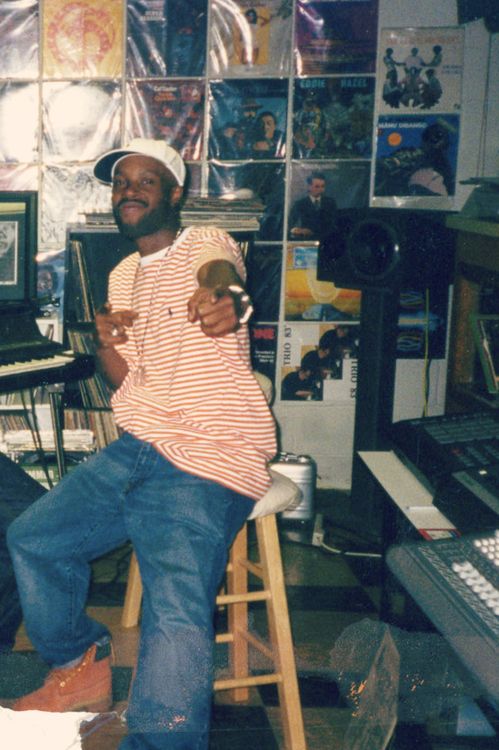

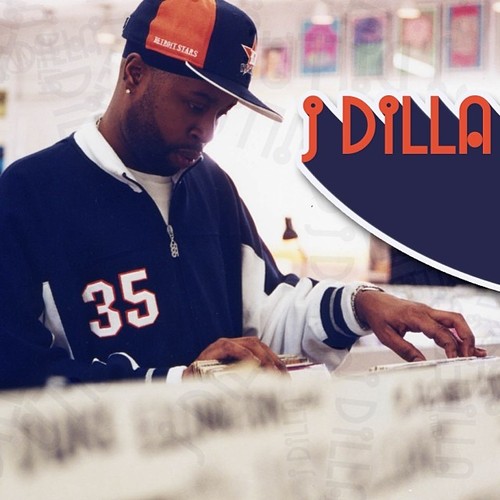
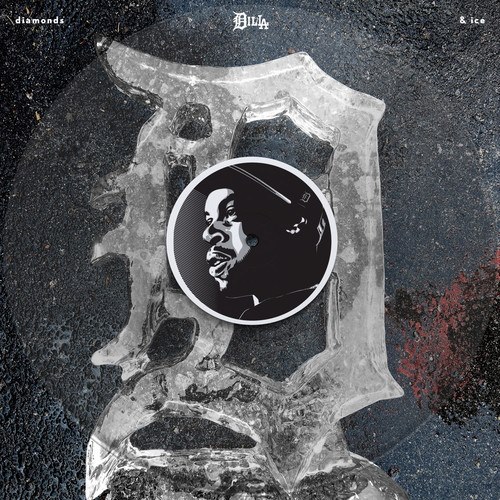




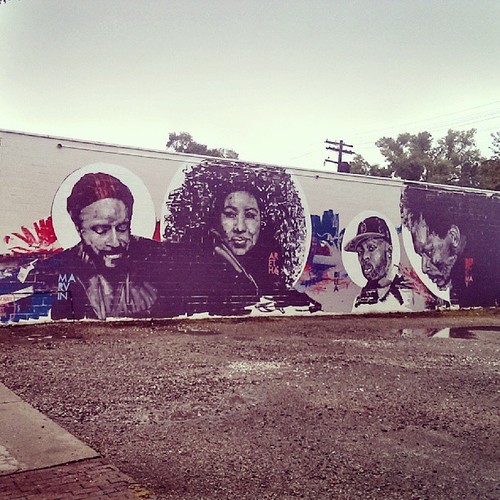

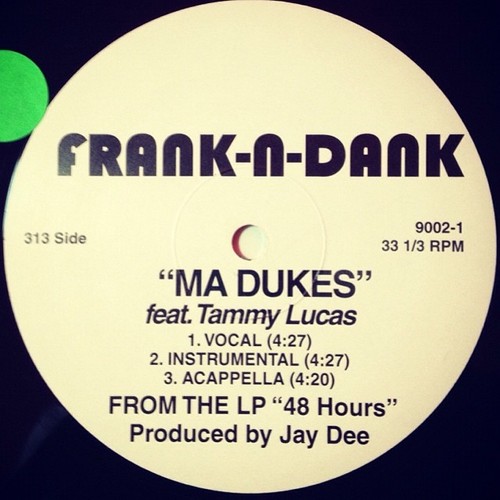
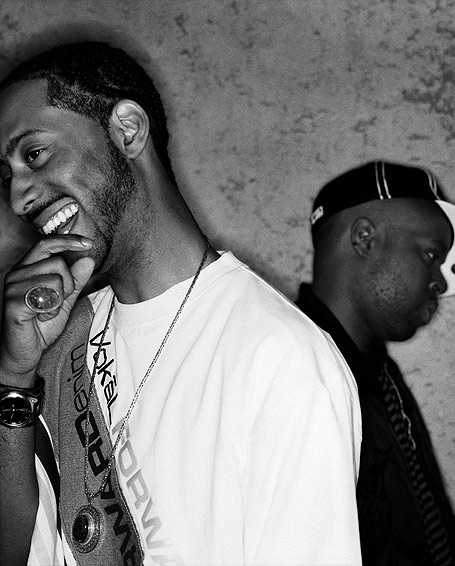

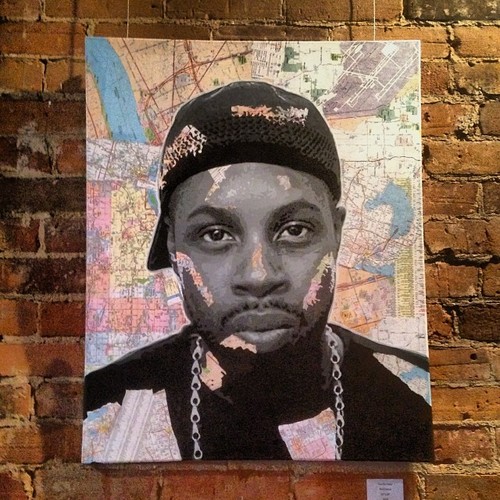


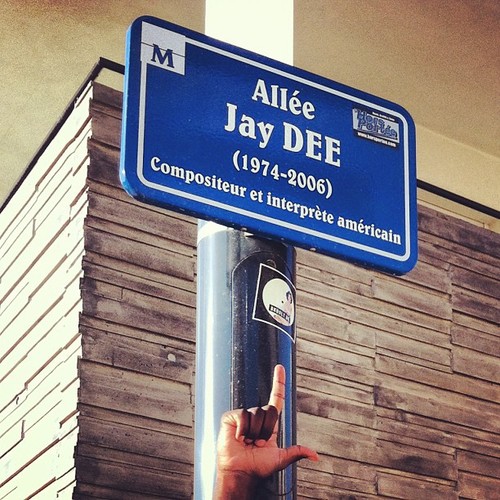

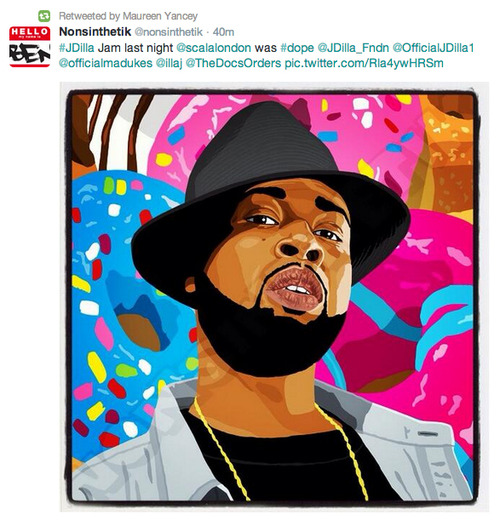

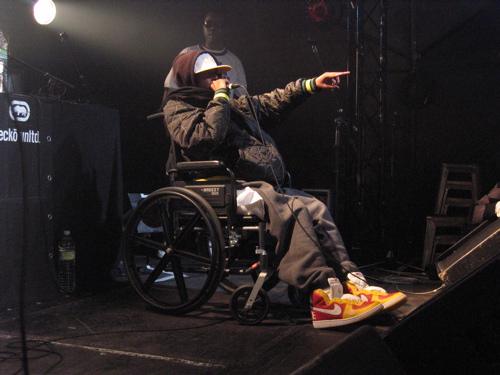

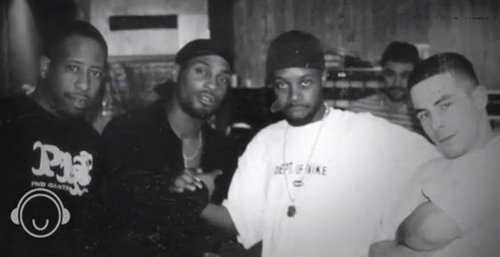
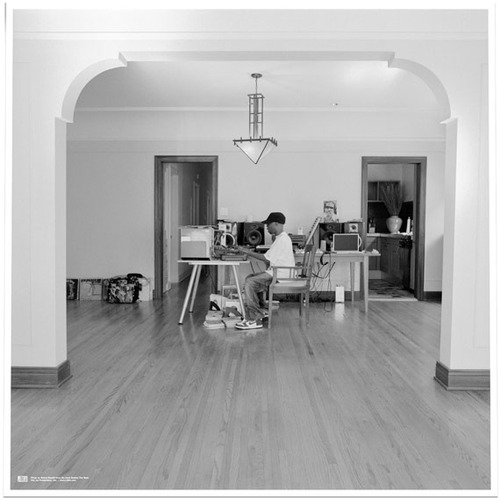
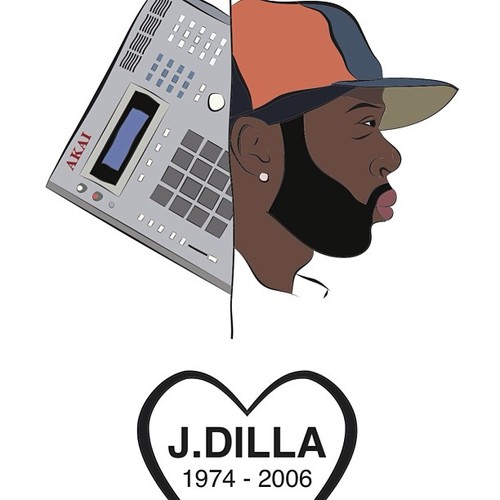
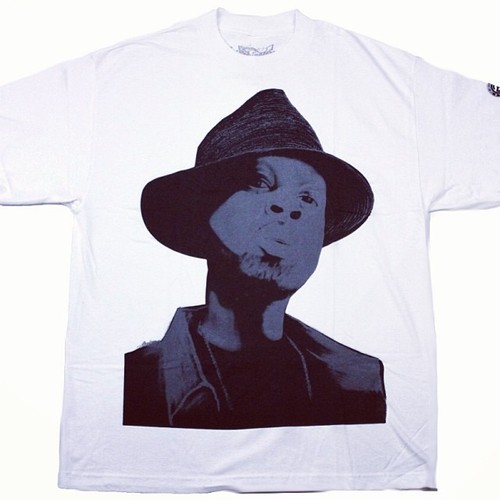

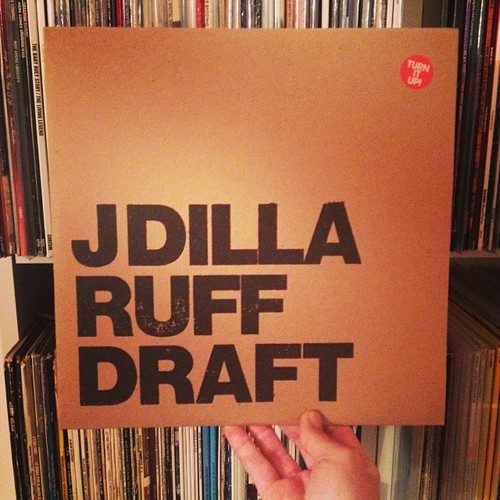

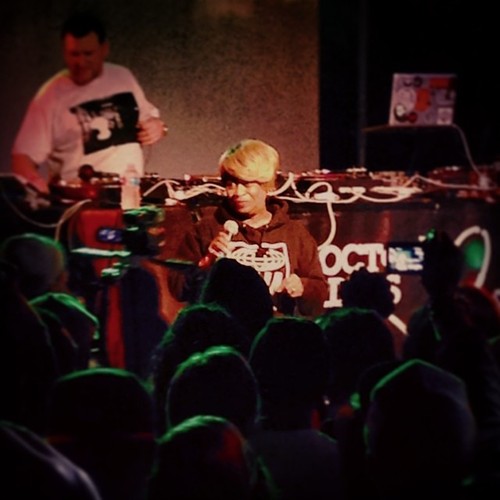

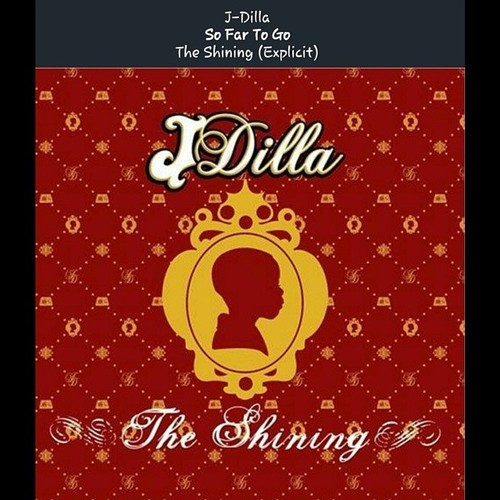
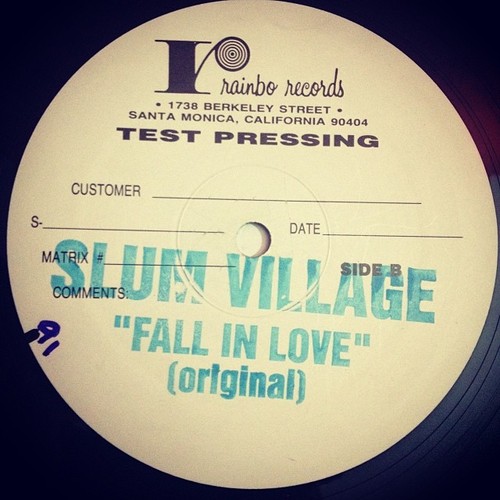
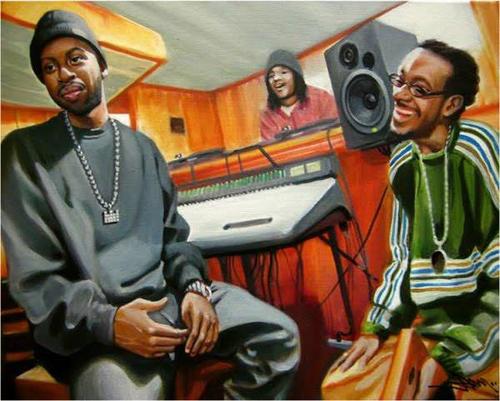



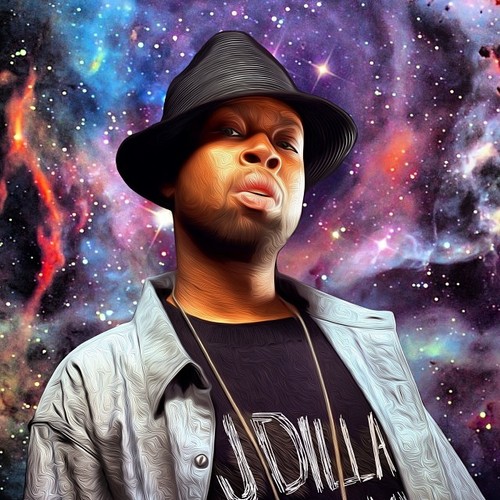

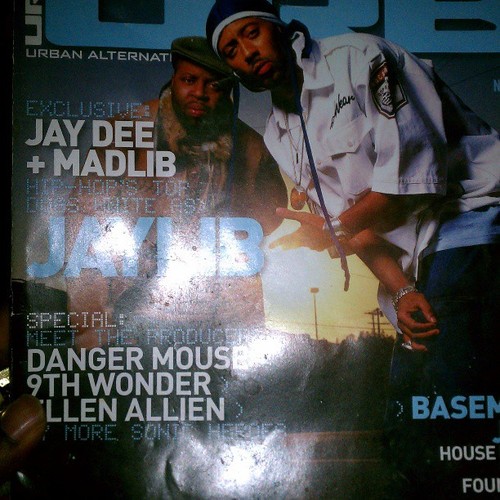

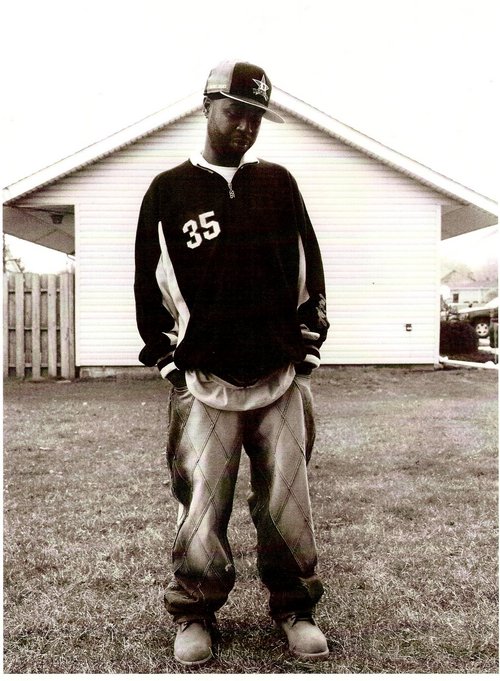
James DeWitt Yancey “came across like an angel on earth,” singer and songwriter Steve “Spacek” White told Fader magazine in 2006. Most people tend to speak of him this way. His contributions to music were indeed felt as angelic, no matter the alias—John Doe, MC Silk, Jay Dee, or J Dilla. But the James Yancey legacy is wide-ranging. What he contributed to the lives of others was duly as significant.
He was an artist to those who worked with him, but also a son, a father, a mentor, and a friend, with interests beyond music. When he began dating a girl who worked at Detroit’s Dutch Girl Doughnuts, it was the best of both worlds. “He would bring home at least two dozen doughnuts every night after he had already eaten one [dozen],” says his mother, Maureen Yancey. The chances of him bringing home two girls were just as great as him toting his favorite confection. “One won’t do and two is not enough for me,” wasn’t just the chorus to one of his songs. “He was honest, though,” Maureen says with a laugh. “He never lied to a girl. He always told them where home was and who he was with, and let the chips fall where they may.”
Yancey and his mother were a team. It was his mother, as well as his father, Beverly Yancey, who instilled the importance of truth at a young age. “My children grew to detest liars,” says Maureen. “So this is how it was with Dilla. If you promised him something, he expected it. If he was going to be honest with you, he expected the same thing.” Honesty remained a theme in their relationship until his death; Yancey even taught his mother how to roll blunts after he fell ill and his fingers became too swollen for him to prepare his self-described “medicine” for himself.
Yancey was humble and generous, known to rent a limousine during the holidays and take his friends Christmas shopping for their families. He was an honest man, making him an anomaly in a music industry where honesty is ordinarily in scant supply. It was this musical sincerity that attracted fans from around the globe and made him a legend among his peers.
Among these peers was DJ Jazzy Jeff, who recalls, “What separated Jay was that he was uninhibited in his knowledge of music, and he was uninhibited when it came to making his music. A lot of producers say they are, but a lot of us are ‘industrialized’ as I like to call it, meaning we’re slaves to an industry, even when we don’t realize it. We have to do something that radio will find credible, or the hip-hop community is going to understand.
“When radio was a freer space and played music that people liked instead of what people paid for, the music that we heard was created by somebody in their basement being a mad scientist. Jay is a throwback to that time. He’s the guy in the basement.”
****
Yancey was born on February 7, 1974 at Zieger Osteopathic Hospital in Detroit, Michigan, the oldest of three children born to Beverly and Maureen “Ma Dukes” Yancey. The family’s musical lineage was strong; mother Maureen was an opera and classical music enthusiast and father Beverly a bassist, vocalist, and 25-year performance and recording veteran. “Jazz was the music he grew up with and was raised on,” says Maureen Yancey. “Since he was a couple of months old, he wouldn’t go to sleep unless he heard jazz, so my husband had to sing and play for him to go to sleep. It was his lullaby music as a child in his nursery.”
From age two, Yancey’s life was nothing but music—an incomparable passion in a music-laden family that included grandfather William James Yancey, a pianist in the silent film industry, and an uncle, Clemmer Yancey, a noted writer, arranger, and singer on the local Detroit circuit. Yancey’s first formal instrument training came on piano and cello, where he learned to read music before taking up drums, flute, and guitar. The family lived in Detroit’s roughly hewn Conant Gardens neighborhood, where Maureen kept her son out of harm’s way by requiring that church act as an alternative to any potential maleficence. If Yancey wasn’t at home working on music, he could be found singing in the Vernon Chapel AME youth choir, or as an acolyte for Holy Communion. He served as a both a Cub Scout and a Boy Scout, and was a member of Vernon Chapel’s Young People’s Division where he was active in community service.
After graduating from Farwell Middle School, Yancey enrolled at Davis Aerospace Technical High School, sparking a struggle for independence in the Yancey household. “He didn’t want to be at Davis,” Maureen recalls, “But he was just excellent at physics, so I thought that maybe he would warm up to it, but he was interested in music. He ended up practically turning Davis into a dance hall, because every time I turned around he was going to DJ some party.”
The technical curriculum at Davis helped Yancey develop a mathematical approach to music composition, but he found other aspects of the experience stifling, particularly the attire. “He hated wearing his Air Force ROTC uniform,” says Maureen, who went back and forth with her son in a “three-year fight about him being at Davis.” The conflict grew when Yancey began working with musician Joseph “Amp” Fiddler, who lived within walking distance from the Yancey home. Fiddler was an accomplished keyboardist, producer, and composer, best known for his tour work with George Clinton and the P-Funk All-Stars. His home studio—Camp Amp—was training ground for many of the neighborhood’s young musicians. “That’s where we bumped heads,” Maureen explains, “because he was supposed to be at school early for lab class, but he was at Amp’s all night in the studio.
“I didn’t realize that Amp was doing sessions at that time. Dilla didn’t tell me he was helping Amp. Amp would let him engineer certain sessions, but he never told me! His dad and I didn’t have a clue that he was as involved as he was, and that he was learning that much. He didn’t talk about it because he wasn’t supposed to be at Amp’s. He was supposed to be at school—at a school I wanted him to excel in!”
Yancey was stubborn, but above all, was “a great kid,” says Maureen, who eventually understood the nature of her son’s resolve. At times, adults may underestimate or overlook a child’s ambition due to his or her youth, but in many instances, children have a clear idea of their life’s path at an early age. At two, Yancey knew his mission was to make music, even though his mother had other plans for his future. “When you know that music is in your heart,” she says, “you have to follow that, and it helps if you have your parents’ support.” The Yanceys were a close-knit family, and Beverly and Maureen both open-minded caregivers, so Yancey was ultimately awarded their blessing.
“My husband and I had many different interests…we did a lot of different things,” Maureen explains. “But James was totally into his music. It was like it ran through his veins.”
****
“Jay was cool; he was quiet,” Amp Fiddler recalls. “Jay was raised well by his parents. Maureen and her husband are good people, and they lived across the street from the church I went to.” Yancey began spending time at Fiddler’s home the late 1980s, digging through the extensive record collection Fiddler shared with siblings and advancing his skills in live instrumentation. Under Fiddler’s tutelage, the youngster was also gaining his first experience with drum machines and digital programming. “He learned the sampler real quick,” says Fiddler. “I’d show him how to quantize, how to freak ****, how to change the time signature, make the feel different, [and] make it fall ahead or behind the beat. He loved that.”
“Amp’s influence on James was wonderful,” says Maureen. But Fiddler was just one of the people in Yancey’s circle, a unit that the reticent teen kept small. A common refrain from those who knew him best is, “Dilla didn’t **** with a lot of people,” although family—nuclear or extended—were family for life. Frank Bush and Derrick Harvey (Frank-N-Dank) were such figures in his life. Best friends since elementary school, “We used to sing in the church choir, Boy Scouts, all of that,” says Dank. “We had a really interesting childhood, and music always played a part in that.” Yancey befriended Ronnie Watts (Phat Kat) during hip-hop open mics at the weekly Rhythm Kitchen; Humberto Andres Hernandez (DJ Dez) was a fellow musician and regular at Camp Amp, plus a member of the Ghost Town collective of which Yancey was a part; the late DeShaun Holton (MC Big Proof) grew close to Yancey post-Ghost Town, forming the Funky Cowboys as the budding producer was outgrowing his pause-and-record method of beat-making and moving on to his early instruments—the Akai MPC60, E-mu SP-12, and Akai S950 drum machines and samplers.
“This was me pre-Hip-Hop Shop, pre-D12,” said Holton in early 2006 “We go back on some real-life ****.”
Rappers R.L. Altman (T3) and the late Titus Glover (Baatin) met Yancey in the late 1980s. The two were also from Conant Gardens, and later, classmates of Yancey’s at Detroit Pershing High School, where Yancey would transfer for his senior year. In a predominantly Black, middle-class district like Conant, hip-hop in the late ‘80s was paramount, and the initial relationship between the three was based on word-of-mouth and the pursuit of neighborhood MC supremacy. Altman and Glover were part of one group and Yancey was one-half of a duo with Frank Bush. “Jay Dee wanted to challenge us in rapping,” said Glover in 2006. “He was like, ‘I can beat both of ya’ll.’” What began as competition, however, turned into camaraderie, as throughout their many rap battles, the trio showcased such individual talent that they became fans of one another’s respective styles.
Like Yancey, Robert O’Bryant (Waajeed) was a promising young producer and also a talented visual artist who had been friends with Glover since they were of single-digit age. O’Bryant and Glover—along with Yancey, Altman, and Yancey’s cousin Que. D as crew dancer—formed a quintet called Ssenepod. As O’Bryant’s art studies began to take precedence and the appeal of hip-hop dancing lessened, Ssenepod was reduced to a trio, and then to a pair as one of its members found his way into street life.
“Baatin had started selling drugs,” says Altman, “and we went to confront him about it. He was like, ‘Man, **** that….I gotta do what I gotta do.’ That’s when we started Slum Village. Slum Village started as rebellion against Baatin, to get him to fall back into hip-hop again.”
With Glover in the streets, Yancey and Altman continued to cultivate the Slum Village sound, recording with Fiddler before signing as artists with a management company run by R.J. Rice and former Detroit Pistons basketball player John Salley in 1992. Rice had long been a fixture in the Detroit music community as the founder of local R&B outfit R.J.’s Latest Arrival, and like Fiddler, provided a home studio setting for Yancey to further his training. Both men recognized Yancey’s tremendous potential, but it was Fiddler—performing on the Lollapalooza tour with P-Funk in 1994—who was able to help the star-in-the-making reach his potential by introducing the music of Yancey and Slum Village to Q-Tip of A Tribe Called Quest.
Says Fiddler: “I was fulfilled just by seeing him reach his goals and being exposed to the world of hip-hop like he should have been, because he had exceptional talent. I knew Q-Tip could take him there.”
Free of his business with Rice and Salley, Yancey’s production career began to blossom under Q-Tip’s direction—traveling, networking, and doing credited and uncredited work for artists such as Janet Jackson, Busta Rhymes, De La Soul, and The Pharcyde. Yet on the home front, Slum Village was stagnant. Glover had returned to the fold, but “we were still broke,” Altman admits. “We were happy for our boy, but at the same time, me and Baatin were broke.”
But Yancey would never forget his friends. “He was loyal to his people,” says Altman, to which Fiddler adds: “I knew he would be back. They were his boys. He and T3 went too far back for him to run off and not come back. And when he came back, he came back with a vengeance. I think he realized that he needed to represent Detroit again, and he came back hard. He made some badass music during that time.”
Among this music was Slum Village’s seminal debut, Fantastic, Vol. 1. The widely bootlegged album sparked a stylistic movement in both the underground and mainstream hip-hop communities, and established Yancey as one of the genre’s brightest young artists. Prior to its initial 1996 release, Q-Tip’s status as an industry icon—and the clandestine nature of the Ummah production team, i.e. Q-Tip, Yancey, and Tribe DJ Ali Shaheed Muhammad—overshadowed Yancey’s individual accomplishments. But with Slum Village finally in the forefront, the real Jay Dee was headed towards prominence.
****
If Q-Tip and Yancey’s Detroit family were influential in the early phases of the producer’s career, then Roots drummer and hip-hop town crier Ahmir “Questlove” Thompson—with help from soul marvel Michael “D’Angelo” Archer—was his fiercest advocate as the ‘90s came to a close. “The night that Q-Tip finally let D have a copy of Fantastic, Vol. 1,” Quest recalls, “D played five cuts on my telephone. Then I had him play the cassette through the phone onto my answering machine, and that’s all I did when I was on tour in Europe. I’d call my machine just to hear the third ‘Fantastic’ interlude. D was in love with ‘Estimate.’” The Roots and D’Angelo were at the center of one of the more creative collectives in hip-hop and R&B history—a group that included Common, De La Soul, Erykah Badu, Mos Def, Talib Kweli, Bilal, James Poyser, and Jill Scott—and Yancey’s reputation among his peers began to grow in spades. His workload also increased, and the combination of greater professional demand and differences in focus led to distance between him and the other members of Slum Village.
“It was more the expectation of things [to come] that made Dilla want to leave the group,” says Altman. “He wanted to put more of a street edge on Slum Village, which was cool, but we weren’t living the lifestyle that he was living.” Not to mention that Yancey was very much an individualist; he was selfless, but also a private man who didn’t desire a lot of attention. Press, label politics, and the overall life of a hip-hop superstar wasn’t his calling, so by the time Fantastic, Vol. 2 was released in 2000, he was largely a member of Slum Village in name only, although continuing to produce for the group on its next two albums.
In 2000, Yancey also produced ten songs on Common’s gold-selling Like Water For Chocolate LP and contributed to Erkyah Badu’s platinum Mama’s Gun. This earned him two Grammy nominations for Common’s “The Light” (Best Solo Rap Performance, 2001) and Badu’s “Didn’t Cha Know” (R&B Song of the Year, 2001). The following year saw the release of Yancey’s solo debut Welcome 2 Detroit—the first artist album to be commissioned by and released on BBE Records. 2001 also brought the “**** the Police” single, which became one of the more popular entries in his catalog.
”That song was totally true,” says Maureen Yancey. “He caught so much flack from the police for being a clean young man. The police department was down the street from where we lived, and every time he pulled off they’d stop him and harass him. They even tossed the car once looking for something; because he was young and clean-cut, they thought he was selling drugs.
“Proof was at the house one evening when James had another run-in with them. He had only gone to the gas station which was three doors away. I told him not to get upset because he was hurt to tears. He was so angry and just tired of being harassed, so I told him, ‘Look, this is what you do—you go downstairs and make a song about it, and you laugh in their face.’ And that’s when he came up with the ‘“F” the Police’ thing. And people are still singing it today! Every time I go somewhere, that’s one of the songs they play.”
Ironically, as a teen, Yancey’s first job was a junior police cadet with the Detroit Police Department. But over the course of his adolescent and adult lives, his opinion of law enforcement gradually became more contemptuous as he experienced persecution for simply being young, black, and liking his clothes wrinkle-free. Thankfully, the profiling didn’t deter his professional growth. In the years following “**** the Police,” he extended his collaboration with Busta Rhymes to an unprecedented five consecutive albums in addition to signing a production contract with MCA Records. As MCA was in the process of folding into Geffen Records, an undaunted Yancey released his second solo effort, the Ruff Draft EP.
Yancey briefly toured Europe in January 2003 in support of Ruff Draft. Upon his return to the States, he took ill. Exhaustion and malnutrition were initially considered possible causes, but a trip to the emergency room revealed thrombotic thrombocytopenic purpura (TTP), a rare blood condition. Despite ailing health, Yancey remained a creative force throughout the year, teaming with renowned Los Angeles producer Madlib for the landmark Jaylib LP and crafting a blistering remix of Four Tet’s “As Serious As Your Life.” At the urging of longtime friend Common, Yancey relocated from Detroit to Los Angeles in the spring of 2004, a year that also brought a return to his musical roots. One such effort was his work on mentor Amp Fiddler’s Waltz of a Ghetto Fly, and another, his interpretation of Jack McDuff’s “Oblighetto” for the Blue Note Revisited LP.
“The Blue Note remix was something he was proud of,” mother Maureen recalls. “It touched something deep in him because it was in a different vein, and it was also the music he grew up with—jazz. It was his lullaby music as a child when he went to sleep in his nursery, so it meant a great deal to him. He probably got more out of that than any gold or platinum plaque.”
Sadly, Yancey’s health began to worsen. Maureen moved to L.A. in November of 2004 to be closer to her son, who became seriously ill as the year came to a close. He would eventually be diagnosed with Lupus, a condition wherein the body’s immune system becomes hyperactive and attacks normal, healthy tissue. The Lupus led to kidney failure and repeated dialysis treatments and hospital visits, yet Yancey wouldn’t let his physical state keep him from reaching out to fans. His work output slowed; Steve Spacek’s “Dollar,” and “Love Is” and “It’s Your World” from Common’s Be LP were notable 2005 productions. But his spirit was strong enough to allow him to tour Europe for a few weeks from November to December with Frank-N-Dank, DJ Rhettmatic, his mother, and friend and confidant Dave “New York” Tobman. “He wasn’t supposed to go,” says Frank, who had been friends with Yancey and Dank for nearly his entire life. “But he said, ‘You know what? I’m going to do it…I’m going to go and rock in a wheelchair.’ It was like this was going to be the last time for him and his ****** to bring this **** full circle.”
Yancey spent his final months doing what he loved the most—creating music. He released Donuts, his third solo LP, on February 7, 2006 before passing away three days later at the age of 32.
Maureen Yancey was extremely close to her son, and he left her with his guidance on how he wanted to be remembered. “We shared the same dream and worked towards it together,” she says. “He prepared me for what I have to do. He accepted his condition, and in order to make me strong and make sure I did what I have to do, he had to instill some things in me.
“So I’m great. I haven’t mourned. I’m not mourning, I’m celebrating, because I’m just so excited about him getting the credit he worked for and deserves; [We’re] letting the world know just how great he was with what he did.”
Upon his death, Dilla had several projects planned for future completion and release.
The Shining, "75% completed when Dilla died," was completed posthumously by Karriem Riggins and released on August 8, 2006 on BBE Records.
Ruff Draft was reissued as a double CD/LP set in March 2007 and is sometimes considered his third solo album. The reissue contains previously unreleased material from the Ruff Draft sessions and instrumentals. Most notably, it was also released in a cassette tape format, paying homage to Dilla's dirty, grimy sound (he was known for recording over two-tracked instrumentals).
Jay Love Japan was announced in 2005 as his debut release on the Operation Unknown label. The official release remains shrouded in mystery, as various legitimate and illegitimate versions of this mini-album can be bought online and in stores.
Champion Sound, J Dilla's and Madlib's collaborative album, was reissued in June 2007 by Stones Throw Records as a 2CD Deluxe Edition with instrumentals and b-sides.
Yancey Boys, the debut album by J Dilla's younger brother John Yancey, was released in 2008 on Delicious Vinyl Records. It is produced entirely by J Dilla and features rapping by his brother, under the name Illa J. Stones Throw Records released a digital instrumental version of the album in 2009.
Jay Stay Paid, an album featuring 28 previously unreleased instrumental tracks made at various points in his career, was released in 2009 by Nature Sounds. Vocals to a select few of the tracks were provided by rappers who were close to Dilla though the majority of the album is instrumental. The project was mixed and arranged by Pete Rock, who was a major inspiration to Dilla.
In 2010, unreleased production and vocals from J Dilla were featured on Slum Village's sixth studio album Villa Manifesto, the first album with all five members.
In December 2011, Jonathan Taylor, CEO of the Yancey Music Group (founded by Dilla's mother Maureen Yancey), told the UK's Conspiracy Worldwide radio show that the album Rebirth of Detroit was ready for a May 2012 release. On May 25, 2012, Mahogani Music released a limited edition 12" vinyl titled Dillatroit/Rebirth Promo EP, leading up to the official release of Rebirth of Detroit on June 12, 2012.
In 2014, J Dilla's long-lost MCA Records album entitled The Diary will be released via his own imprint Pay Jay Productions, which is now managed by members of his family. Completed in the early 2000s, the album is a collection of Dilla's vocal performances over production by Madlib, Pete Rock, Nottz, House Shoes, Karriem Riggins, and others. Pending the release of the album, the first single "Anthem" is available as a pre-sale at Rappcats.com and is due out on 12-inch vinyl on April 15, 2013, packaged with B-side "Trucks" – both produced by Dilla himself.
Legacy
J Dilla leaves behind two daughters. In May 2006, J Dilla's mother announced the creation of the J Dilla Foundation, which will work to cure people affected by lupus.
Dilla's death has had a significant impact on the hip-hop community. Besides countless tribute tracks and concerts, Dilla's death created a wealth of interest in his remaining catalog and, consequently, Dilla's influence on hip-hop production became more apparent.
Dave Chappelle gives a special dedication to J Dilla in his movie Dave Chappelle's Block Party, which includes the statement: "This film is dedicated to the life and memory of Music Producer J Dilla, aka Jay Dee (James D. Yancey)". The film focuses mostly on members of the Soulquarians, a collective of hip-hop musicians of which Yancey was also a member.
J Dilla's music has been used in various television programs. Cartoon Network's late night programing block, Adult Swim, has played the songs "Waves", "Welcome to the Show", and "Mash" during the commercial bumpers in between shows, as well as a number of tracks on their Chrome Children EP. In May 2010, UK mobile network 02 used Jaylib's "The Red" instrumental in their "Pool Party" ad. A recent BBC documentary inspired by the Olympic runner Usain Bolt contained two J Dilla-produced songs - "So Far To Go" by Common and "Runnin'" by The Pharcyde.
In February 2007, a year after his death, J Dilla posthumously received the PLUG Awards Artist of the Year as well as the award for Record Producer of the Year. In Dilla's hometown of Detroit, Detroit Techno veteran Carl Craig has fronted a movement to install a plaque in honor of J Dilla in Conant Gardens (where the artist grew up and initiated his career). A resolution for the proposed plaque was passed by the Detroit Entertainment Commission in May 2010, and is currently awaiting approval by the Detroit City Council.
Outside of hip hop, Dilla has proven to be highly influential to the works of bands and producers within the United Kingdom. Jack Barnett of These New Puritans has been seen occasionally wearing a "J Dilla Changed My Life" T-shirt. The band subliminally honored Dilla by replicating the notable minimal driving drum pattern of "Jungle Love" from The Shining on "InfinityytinifnI", which is found on the album Beat Pyramid. Southend-on-sea shoegaze-punk band The Horrors, London indie rock bands The xx, Golden Silvers and Mystery Jets alongside electronic producers Joy Orbison, Darkstar and Micachu & Kwes have all cited Dilla as a major musical influence.
Despite these accolades, there have been documented conflicts between his mother and the executor of his estate Arthur Erik regarding future Dilla releases. In an interview with LA Weekly, Erik described how difficult it was for the estate to "protect his legacy" due to bootlegging and unofficial mixtapes. He stressed how important it was for the estate to gather all possible income related to Dilla's name, as Dilla had to borrow money from the government due to mounting medical bills at the end of his life.
A few weeks later Dilla's mother, who has appeared on such unofficial mixtapes such as Busta Rhymes' Dillagence, gave her take on these issues. In addition to stating that Arthur Erik and Dilla's estate has chosen not to communicate with his family, she has stated that he has barred anyone from use of Dilla's likeness or name.
One of the things Dilla wanted me to do with his legacy was to use it to help others, people with illness, kids who were musically gifted but had little hope due to poverty. I wanted to use my contacts to help people out and it was squashed because we weren’t in compliance with the state and there was nothing we could do about it. I’m Dilla’s mother and I can’t use Dilla’s name or likeness, but I know that I still can honor him by doing his work.
Mrs. Yancey also has mentioned that Erik was in fact Dilla's accountant and not his business manager in his lifetime, and that he fell into his position because she and Dilla were first and foremost concerned about his health and not with getting paperwork in order. She also stated that Dilla's friends in the hip-hop community, such as Erykah Badu, Busta Rhymes, Madlib, Common and The Roots, have contacted her personally for future projects with Dilla beats, but the estate has vetoed all future projects not contracted prior to Dilla's death. She also implied that Dilla would not support the estate's practices, such as their persecution of bootleggers and file sharers.
Dilla was about love in many formats and for his estate to have done the exact opposite is not having any respect for him or who he was.
Due to Dilla's debt to the government, the family receives no income from projects. Dilla's children are being supported by the social security their mothers have drawn. Likewise, Mrs. Yancey is also still paying off Dilla's medical bills that she helped finance, leaving her also in tremendous debt. She still lives in the same Detroit ghetto, is still a daycare worker at Conant Gardens and also suffers from lupus, the same disease which killed Dilla. To help pay the cost of medication and keep her household afloat, Delicious Vinyl donated all proceeds of Jay Dee – The Delicious Vinyl Years to Mrs. Yancey in 2007. In 2008, Giant Peach created a donation PayPal account for her and RenSoul.com released a charity mixtape. Despite these actions, it would appear that little income has been generated, as Stones Throw has just released a charity t-shirt on its website.
In a recent article on the family's troubles in Vibe magazine, his mother revealed that the family lost their old home in Detroit due to her taking care of Dilla in his final days. The mother of one of Dilla's children, Monica Whitlow, also broke her silence on the issue of the estate and his legacy:
It pisses me off, everything that's going on with this estate. It's ridiculous 'cause it's been three years, and my baby has not seen anything from this estate.
On January 24, 2010, an announcement was made on j-dilla.com, regarding the J Dilla Estate and the Yancey family.
The family of late music producer James “J Dilla” Yancey is extremely pleased to announce the appointment of West Coast probate attorney Alex Borden as administrator of Yancey’s estate, and also to announce the establishment of the official J Dilla Foundation. The developments mark a new chapter in preserving and enhancing the legacy of the legendary artist and secure a means of future prosperity for his mother, Maureen “Ma Dukes” Yancey, daughters Ja’Mya Yancey and Ty-Monae Whitlow, and brother, John “Illa J” Yancey.
In Summer 2012, Montpellier, France dedicated a small street "Allée Jay Dee".
In August 2013, the opening of Dilla's Delight's, a donut shop located in the Harmonie Park neighborhood of Downtown Detroit, was announced for the following Fall. The new shop will be operated by Dilla's uncle, Herman Hayes.
(sources: j-dilla.com, wikipedia.org)
The history of hip hop culture and music. Learn about how hip hip has been commercialized, impacted pop culture, education & the universe. Take the journey through the 1990's with Tupac, the Notorious B.I.G., The Wu-Tang Clan, Jay-Z, Nas, DMX, Lil Kim, Junior Mafia, Tribe Called Quest, Dr. Dre, Snoop Dogg, Outkast, Scarface, Mos Def, Lady of Rage, The Fugees, Lauryn Hill, Puff Daddy, P. Diddy, Ruff Ryders,
photo credits include: 720 music cafe, abjo of soulection, brasz clothing, brooklyn bowl, coredejour (tumblr), da illest (artwork), dan evans illustrations, the fillmore (detroit), funkbyfunk (tumblr), gemma mae art, hegetsthegirl (tumblr), isquat (tumblr), matt cohen photography, nonsinthetik, officialjdillatumblr, raph boogie photography, robot2fresh (tumblr), rockfreshdotcodotuk, sammoorecandraw (tumblr), stussy, theproducerbdbdotcom, urb magazine







